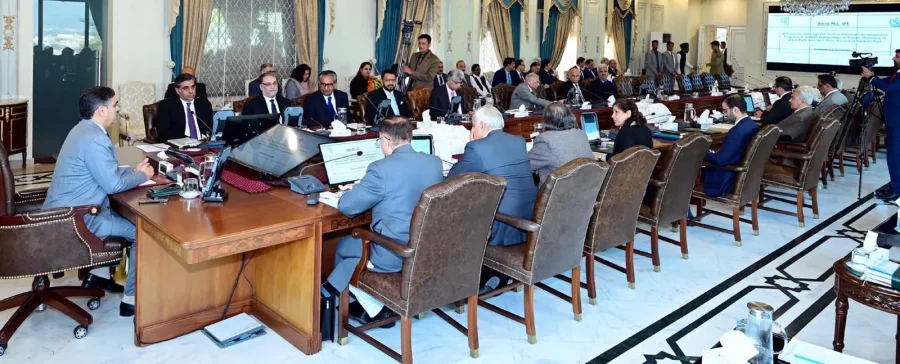The federal cabinet on Thursday increased gas prices for residential users up to 67% and for fertiliser plants by 700% to recover additional Rs242 billion from all the consumers.
Immediately after the cabinet meeting, the Oil and Gas Regulatory Authority issued the notification of the new gas prices aimed at meeting the International Monetary Fund’s condition to raise prices by February 15th –Thursday. The decision would take effect from the first of February and the new bills would be issued with revised rates, showed the notification.
Prime Minister Anwaarul Haq Kakar chaired the cabinet meeting, which gave the go ahead to increase the gas prices for the second time in the past three months.
The decision also puts an unreasonable burden on a class of residential consumers using more than 2 cubic hectometers (Hm3) gas for creating fiscal space to pay subsidies to other domestic consumers.
The interim cabinet also finally took the much-delayed but needed decision to withdraw the Rs50 billion subsidies of the few fertilisers plants, which were earlier given preferential treatment by robbing the industrial consumers.
Interim Finance Minister Dr Shamshad Akhtar played a pivotal role in the withdrawal of the fertiliser plants’ subsidy, although the energy minister was in favour of continuing these subsidies. The fertiliser plants were availing these subsidies without passing on the benefit to the farmers.
The Economic Coordination Committee of the cabinet held two rounds to approve these prices and finally took the decision on Wednesday.
The federal cabinet has ratified the ECC decision of February 14, reads a press statement issued by the Prime Minister’s Office after the cabinet meeting on Thursday.
It is the third increase in the prices that the consumers would bear amid double-digit inflation. The increase has thrown an additional burden of Rs242 billion on the consumers, including Rs37 billion that the government would earn in sales tax. It was also the second revision in the gas prices by the caretaker government in the past three months after it earlier increased the prices up to 1108% – the highest for the most vulnerable households.
The fresh revision has also put the maximum burden on the most vulnerable households with a 67% or Rs100 increase per unit for the domestic monthly consumption of 0.5 cubic hectometers (HM3). For the other protected domestic consumers the increase is in the range of Rs200 to Rs250 – also ranging from 25% to 67%. The prices for non-protected residential consumers are either now close to the prescribed price of Rs1,597 per mmbtu or even higher than the prices of imported Re-gasified Liquefied Natural Gas. The rates for 1.5 Hm3 consumers have been increased to Rs1,450 – higher by 21%.
The new prices for the 2 hm3 monthly consumption consumers are Rs1,900 – up by 19% – and Rs300 more than the cost of gas they need to pay. Similarly for the next slab of 3 Hms consumption, the new rate is Rs3,300 – close to the imported gas rate of Rs3,750.










